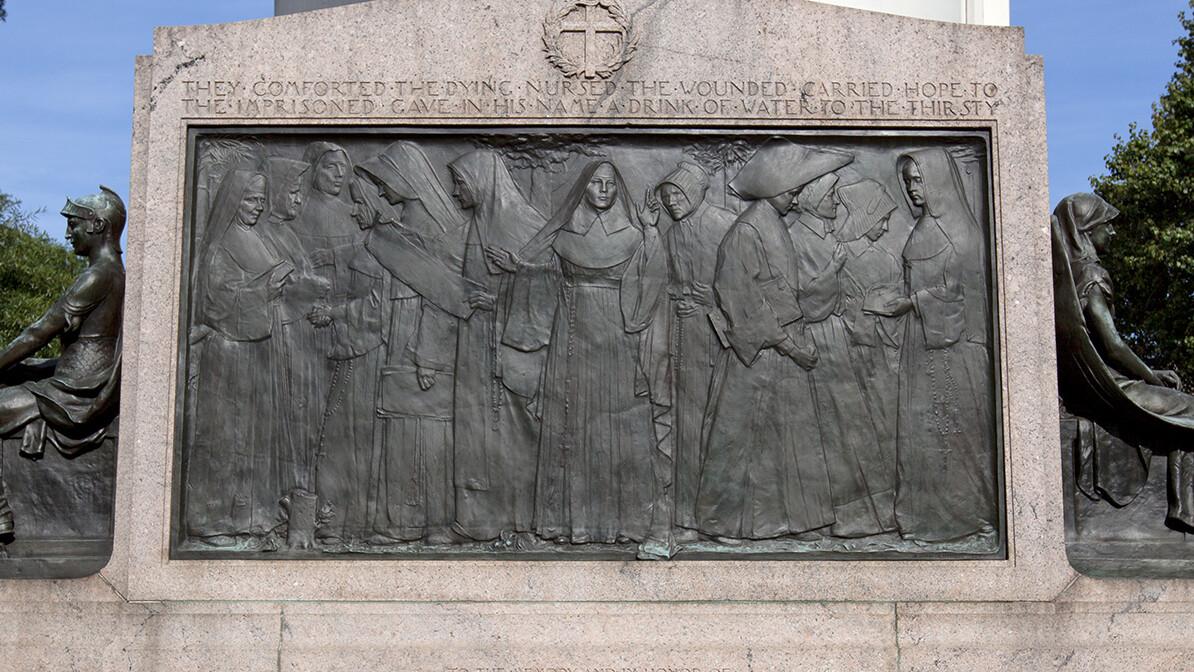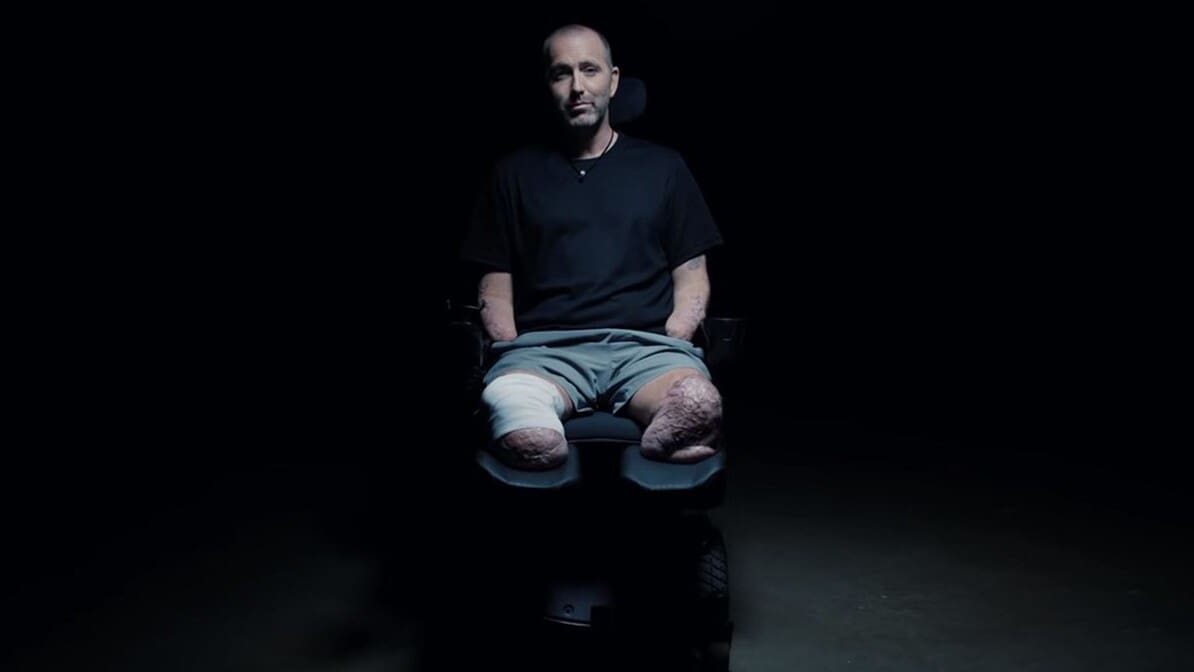
Healthcare & Hospitals Pioneered by Christian Charity (Part 2)
Whereas Catholic healthcare began with the focus of preparing a person’s soul for death when they would meet God in “the hereafter,” Protestant healthcare focused more on “the here and now,” being motivated to clean up the slums in crowded cities and send medical missionaries to undeveloped countries.
America’s first hospital was Pennsylvania Hospital founded in 1751 by Dr. Thomas Bond and Benjamin Franklin “to care for the sick-poor and insane who were wandering the streets of Philadelphia.”
The Hospital cornerstone recorded text composed by Franklin:
“In the year of Christ, 1755 … This building, by the bounty of the Government and of many private persons, was piously founded, for the relief of the sick and miserable. May the God of mercies bless the undertaking!”
In “Some Account of the Pennsylvania Hospital from its first rise (in 1751), to the beginning of the fifth month, called May 1754,” Benjamin Franklin stated:
“It would be a neglect of that justice which is due to the physicians and surgeons of this hospital, not to acknowledge that their care and skill, and their punctual and regular attendance, under the Divine Blessing, has been a principal means of advancing this charity to the flourishing state in which we have now the pleasure to view it. Relying on the continuance of the Favour of Heaven, upon the future endeavors of all who may be concerned in the management of the institution, for its further advancement, we close this account with the abstract of a sermon, preached before the Governors.”
The second oldest hospital in America was New York-Presbyterian Hospital founded in 1771, founded by Samuel Bard, who was a personal physician to George Washington. The third oldest hospital in America, Massachusetts General Hospital, was founded in 1811, being significantly financed by Jewish residents Moses Michael Hays, a neighbor of Paul Revere, and Abraham and Judah Touro.
In 1809, Mother Elizabeth Ann Seton brought the Sisters of Charity to the United States. Beginning in 1829, Sisters who immigrated largely from France and Ireland founded 299 hospitals in America in the 19th century, including:
- Mayo Clinic,
- Vincent’s,
- Baltimore Infirmary, and
- hospitals for the working classes in Buffalo, Philadelphia, and Boston.
In 1830, Sisters of Charity established the first hospital west of the Mississippi River in St. Louis, Missouri. When St. Louis suffered devastating cholera epidemics in 1832 and 1849, which killed thousands, the sisters risked death caring for diseased patients, as described by Bishop Rosati: “Patients were visited by us day and night with the greatest alacrity and without any fear of death.” Four Daughters of Charity died.
Healthcare & Hospitals During Wartime
At the request of President Lincoln, over 200 Sisters of Charity served during the Civil War on battlefields and in military hospitals. Just as Clara Barton volunteered and cared for troops during the Civil War, so did eight different orders of Catholic nuns, numbering over 600 and comprising over a fifth of all female nurses. A monument was erected in Washington, D.C., to the “Nursing Nuns of the Battlefield,” with the inscription:
“They comforted the dying, nursed the wounded, carried hope to the imprisoned, gave in His Name a drink of water to the thirsty. To the memory and in honor of the various orders of sisters who gave their services as nurses on battlefields and in hospitals during the Civil War. Erected by the ladies Auxiliary to the Ancient Order of Hibernians of America. A.D. 1924. By Authority of the Congress of the United States.”
During the Civil War, U.S. Surgeon General Hammond reported to President Lincoln that volunteer nurses “cannot compare in efficiency and faithfulness with the Sisters of Charity.”
During the Franco-German War, 1870-1871, Clara Barton went to Europe where she worked with Henri Dunant, founder of the International Red Cross. Henri Dunant was the first recipient of the Nobel Peace Prize. He founded the Geneva chapter of the YMCA (Young Men’s Christian Association).
Dunant supported Jews repopulating Palestine. He was one of the few non-Jews to attend the First Zionist Congress in Basel, 1897. Theodore Herzl first used the term, “Christian Zionist” in reference to Henri Dunant.
Henri Dunant’s International Red Cross began operating under the symbol of the Red Crescent during the Muslim Ottoman conflict with Russia, 1877- 1878, and that symbol has since been recognized in 33 Islamic States.
Inspired by Dunant’s International Red Cross, Clara Barton established the American Red Cross Society, May 21, 1881, serving as its head until 1904.
During the Spanish-American War of 1898, over 250 Sisters of Charity served. Their medical assistance was desperately needed, as more soldiers died of severe diarrhea, dysentery, typhoid fever, and malaria than died in combat.
Beth Israel Hospitals were founded for growing Jewish immigrant populations in:
- New York’s Lower East Side, 1890;
- Newark, 1901; and
- Boston, 1916.
Wealthy individuals donated and provided in their wills to continue these religious ministries of charity.
Catholics, Protestants, and Jews pioneered free healthcare for the poor “uninsurable” because they were motivated by Judeo-Christian religious convictions. Physicians took an earlier version of the Hippocratic Oath, in which medical skills would not be used to euthanize a patient or commit an abortion:
“I will give no deadly medicine to anyone … furthermore, I will not give to a woman an instrument to produce an abortion.”
Modern revisions of the oath have not only removed these values, but removed a physician’s freedom of conscience to not participate in them.
Mother Teresa and the Sisters of the Missionaries of Charity
The New York Times wrote, August 20, 2011, that Catholic nuns were trained to “see Jesus in the face of every patient.” Mother Teresa reaffirmed this with the Sisters of the Missionaries of Charity being dedicated to: “Wholehearted and Free service to the poorest of the poor.”
They began by gathering the sick from the gutters in India, and bathing them, clothing them, and ministering to their needs. Mother Teresa stated:
“I see Jesus in every human being. I say to myself, this is hungry Jesus, I must feed him. This is sick Jesus. This one has leprosy or gangrene; I must wash him and tend to him. I serve because I love Jesus.”
It is ironic that in the recent takeover of healthcare by government and for-profit corporations, the Judeo-Christian values which pioneered medical care for the poor and needy are being marginalized. When concerns were brought up during the debates of the Patient Protection and Affordable Care Act, Speaker of the House Nancy Pelosi rushed the legislation to a vote, stating March 9, 2010: “We have to pass the bill so that you can find out what is in it.”
“What was in it” were regulations which, in numerous instances, resulted in the government pressuring religiously motivated healthcare professionals to abandon their consciences, as well as the very spiritual beliefs which gave birth to healthcare in the first place.
Similar to the time of the French Revolution, the Christian religious convictions which motivated people of faith to selflessly provide free healthcare for the poor for over a thousand years are now being relegated to insignificance by utilitarian central planners.
…
Featured image credit: Carol M. Highsmith / Nuns of the Battlefield Monument / Public Domain
1st interior image credit: Luca Borghi / Pennsylvania Hospital / CC BY-SA 3.0
2nd interior image credit: Unknown / Henri Dunant / Public Domain
Trending Now
Sign up today for your Inspiration Today Daily Newsletter
Supercharge your faith and ignite your spirit. Find hope in God’s word. Receive your Inspiration Today newsletter now!
William Federer
William Federer is a nationally known speaker, best-selling author, and president of Amerisearch, Inc., a publishing company dedicated to researching America's noble heritage. Bill's American Minute radio feature and his Faith in History television broadcast can be viewed daily across America and on the Internet. Learn more at amerisearch.net
Related Articles
January 28, 2026
I Just Knew It Was God: From Searching to Finding Faith
From the outside, Ekaterina’s life looked successful. She had a college degree, a strong career,…
January 26, 2026
How to Overcome Old Wounds with Resilience
How Do You Deal with Old Wounds? Everyone is talking about trauma, but very few are talking about…
November 21, 2025
Thank You … Lord
Gratitude transforms our lives and draws us closer to God. This article explores how practicing…
October 27, 2025
So, Is God Good?
Many people wrestle with the question, is God good, especially when life brings pain and loss.…
Next Steps To Strengthen Your Walk
Inspiration Today Newsletter
Supercharge your faith and ignite your spirit. Find hope in God’s word. Receive your Inspiration Today newsletter now!
Christian Articles
Find articles to strengthen your walk and grow your faith. We have a wide range of topics and authors for you.
Submit A Prayer Request
We are here for you. Simply click on the button below to reach us by form, email or phone. Together we will lift our hearts and voices with you in prayer.





